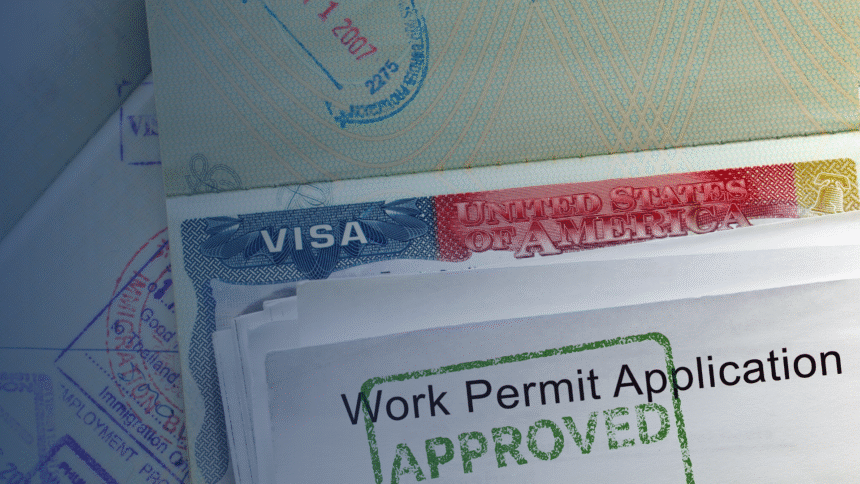The United States government has ended automatic work permit extensions for millions of foreign workers across the country.
The Department of Homeland Security (DHS) announced the policy change, eliminating the automatic extensions of Employment Authorization Documents (EADs) for most foreign workers filing renewal applications.
The decision to end automatic work permit extensions, which comes into effect for filings on or after October 30, 2025, marks a shift from the previous policy and will require affected individuals to navigate the renewal process without the former safety net.
Prior to this new interim final rule, foreign workers in certain eligibility categories who had filed a timely EAD renewal application could continue working legally under an automatic extension, sometimes for as long as 540 days, while U.S. Citizenship and Immigration Services (USCIS) processed their renewal. This grace period was critical for preventing employment gaps due to USCIS backlogs.
With the rule that the EAD automatic extension ends, this protection is gone for new filings. Individuals who file to renew their EAD on or after October 30, 2025, will no longer have work authorization extended beyond their current EAD’s expiration date.
They must wait for the new EAD to be approved and issued before legally continuing their employment in the United States.
The announcement that the U.S has ended automatic work permit extensions was made known in a press statement posted on the official website of the USCIS.
DHS, through USCIS, justified the rule change by stating it prioritizes the “proper screening and vetting of aliens before extending the validity of their employment authorizations.”
According to the DHS, this change aims to improve background checks and fraud detection by ensuring all applicants are thoroughly checked before their work authorization is renewed.
The statement reads: “The Department of Homeland Security has announced an interim final rule ending the practice of automatically extending employment authorization documents for aliens filing renewal applications in certain employment authorization categories. With this rule, DHS prioritizes the proper screening and vetting of aliens before extending the validity of their employment authorizations.
“Aliens who file to renew their EAD on or after Oct. 30, 2025, will no longer receive an automatic extension of their EAD. There are limited exceptions to this rule, including extensions provided by law or through a Federal Register notice for TPS-related employment documentation. Ending automatic extensions of EADs results in more frequent vetting of aliens who apply for employment authorization to work in the United States. Reviewing an alien’s background more often will enable U.S. Citizenship and Immigration Services (USCIS) to deter fraud and detect aliens with potentially harmful intent so they can be processed for removal from the United States.
“USCIS is placing a renewed emphasis on robust alien screening and vetting, eliminating policies the former administration implemented that prioritized aliens’ convenience ahead of Americans’ safety and security,” said USCIS Director Joseph Edlow. “It’s a commonsense measure to ensure appropriate vetting and screening has been completed before an alien’s employment authorization or documentation is extended. All aliens must remember that working in the United States is a privilege, not a right.”
“USCIS recommends aliens seek a timely renewal of their EAD by properly filing a renewal application up to 180 days before their EAD expires. The longer an alien waits to file an EAD renewal application, the more likely it is that they may experience a temporary lapse in their employment authorization or documentation.
“The interim final rule does not affect EADs automatically extended before Oct. 30, 2025.”
The development comes amid the ongoing immigration overhaul by the administration of United States President Donald Trump.
Recently, Trump announced that U.S. H-1B visa applications will now attract a $100,000 fee. It was gathered that the $100,000 would be a single upfront fee tied only to the first petition
Recall also that Trump has unveiled a $1 million Gold Card, a premium visa program targeting the world’s wealthiest immigrants for expedited residency and a pathway to citizenship.
Announced via executive order, Trump declared that the initiative is expected to generate billions in revenue while prioritizing high-value contributors to the American economy.





